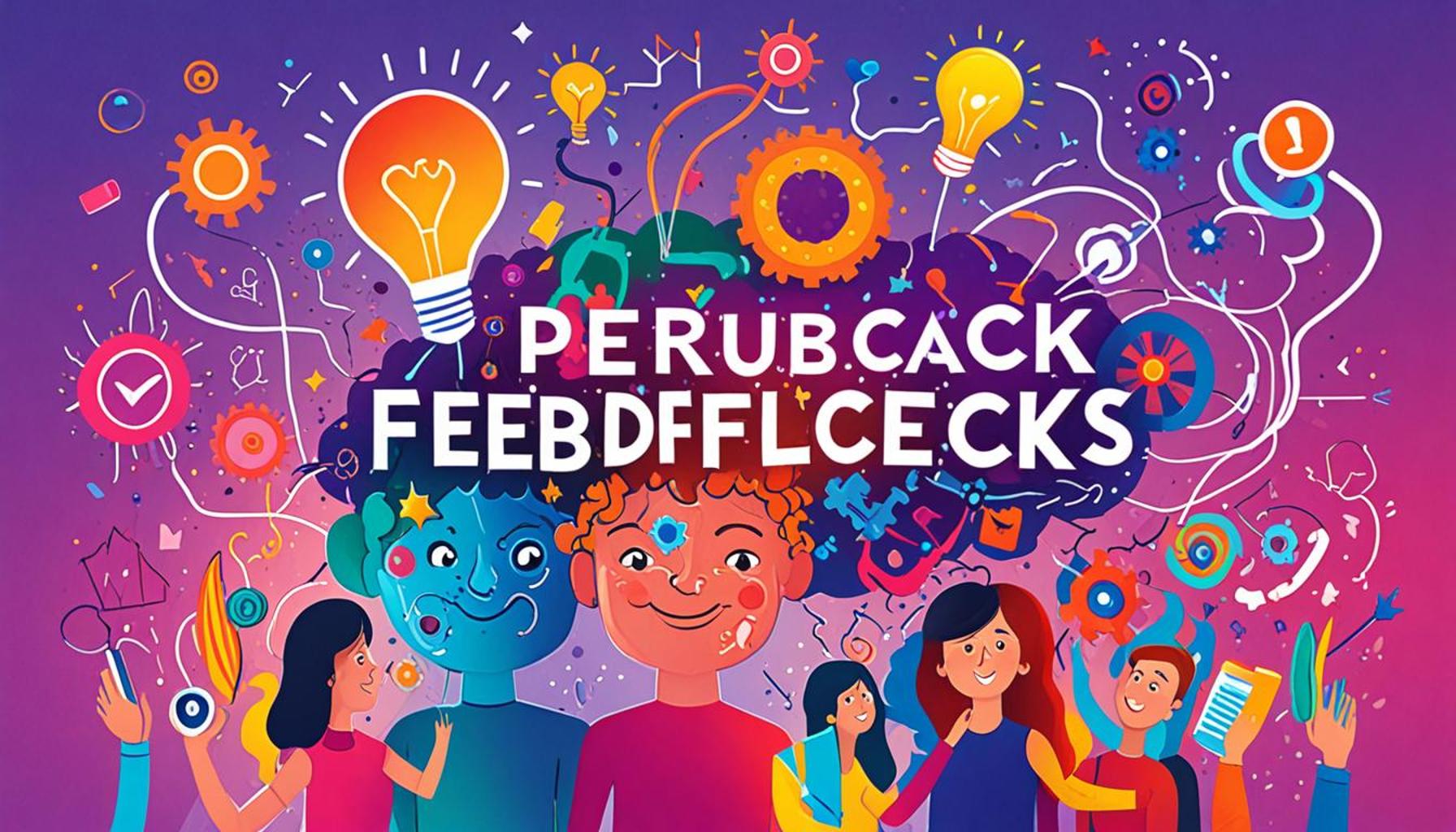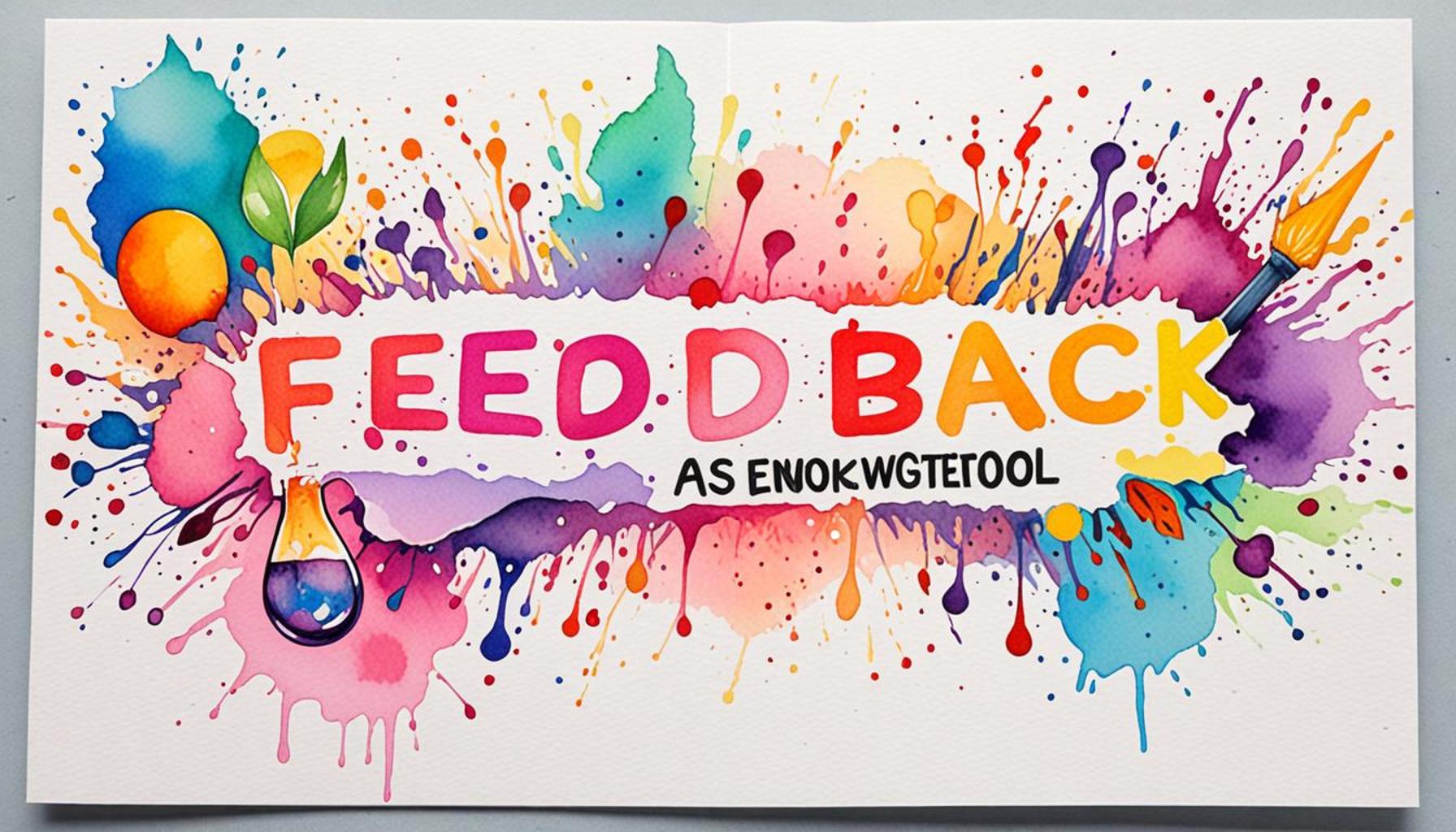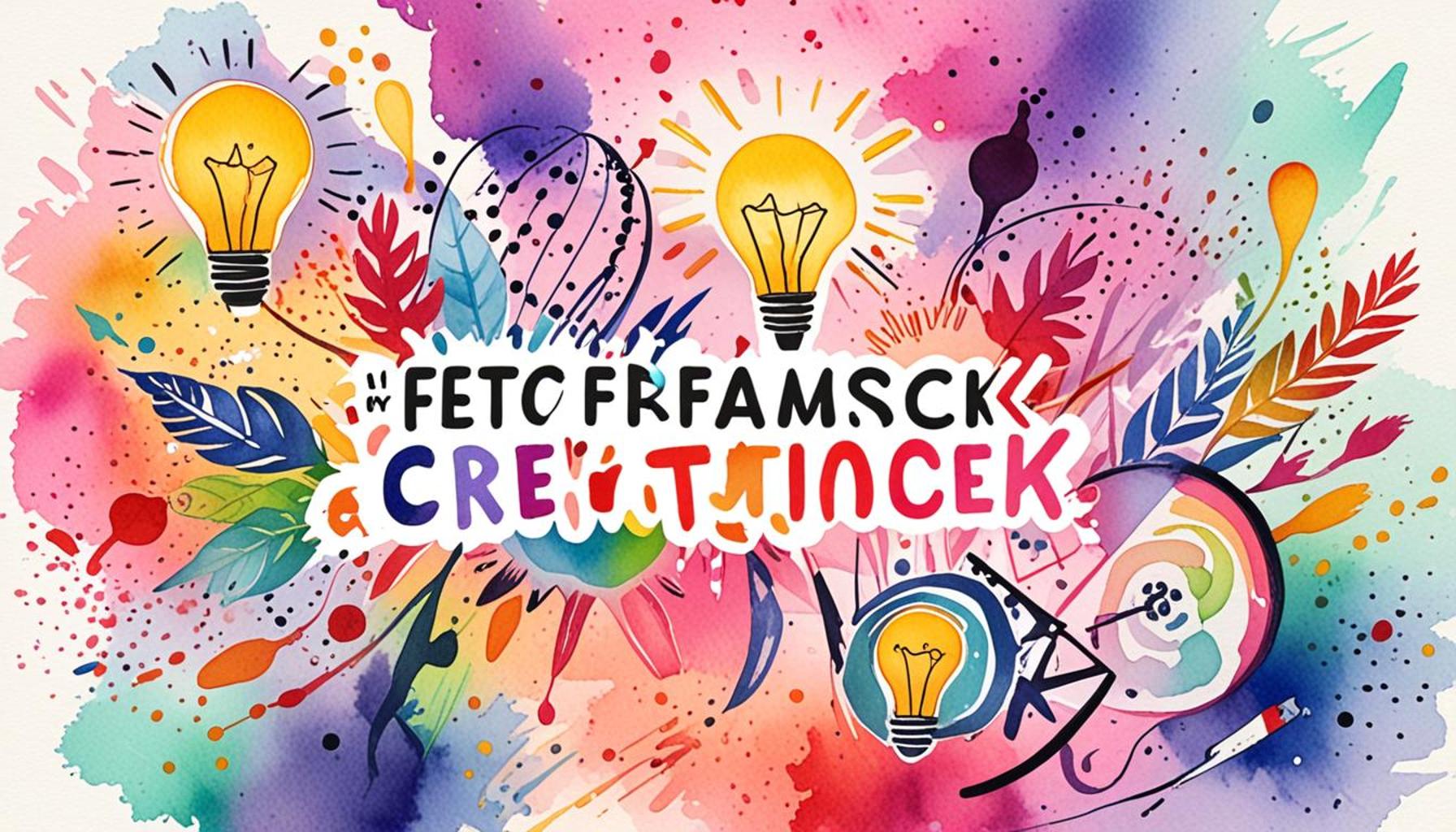The Role of Peer Feedback in the Development of Skills and Competencies

Understanding the Impact of Peer Feedback
In an era where skills are constantly evolving due to rapid technological advancements and shifting job markets, the importance of effective skill development cannot be overstated. Peer feedback has emerged as a vital mechanism in this transformative learning journey, offering a collaborative approach to education and professional development.
The benefits of peer feedback are manifold, providing a rich framework for growth:
- Diverse Perspectives: When individuals collaborate, they bring unique viewpoints shaped by their personal experiences. This variety not only broadens understanding but can lead to innovative solutions. For example, in Nigeria, a group of students working on a project about renewable energy might encompass backgrounds in engineering, environmental science, and economics, leading to a well-rounded project that addresses the multifaceted nature of the energy crisis.
- Intentional Learning: Peer feedback cultivates an environment where learners actively engage rather than passively receive information. This culture of accountability encourages students to take ownership of their learning and challenge each other productively. Schools and universities across Nigeria are increasingly promoting group assignments where the evaluation process is collaborative, responding to the demand for deeper understanding and skill acquisition.
- Critical Thinking: Providing constructive criticism requires thoughtful analysis, which sharpens not only the reviewer’s skills but leads to deeper insights for both the giver and the receiver. For example, when a student critiques a peer’s business proposal, they must consider not only the content but also market feasibility, profitability, and social implications—key aspects pertinent to the Nigerian entrepreneurial landscape.
In Nigeria’s educational framework, where innovative teaching methods are often sought after, integrating peer feedback into learning can revolutionize traditional approaches. This is particularly relevant considering the nation’s commitment to improving educational outcomes amidst a rapidly changing economic landscape. For instance, students collaborating on technology-focused projects can significantly enhance their communication and teamwork abilities, crucial skills in today’s job market.
Additionally, incorporating structured feedback mechanisms in workshops can refine practical skills specifically aligned with local industries, such as agriculture, technology, and crafts, which are pivotal to the Nigerian economy. By fostering peer review and collaborative updates, institutions can continuously adapt their curricula to reflect the evolving needs of the marketplace.
In summary, the significance of peer feedback extends well beyond academic boundaries; it is a robust framework that can facilitate both personal and professional growth. As we continue to recognize its value, embracing this practice can open new avenues for learners in Nigeria and beyond, ultimately creating a more competent and versatile workforce prepared to tackle the challenges of tomorrow.
ADDITIONAL INSIGHTS: Expand your understanding here
Enhancing Learning through Collaborative Engagement
The role of peer feedback in skill development transcends mere constructive criticism; it embodies a holistic approach to learning that emphasizes mutual growth and collaboration among individuals. In the context of Nigeria, where educational institutions are increasingly focused on equipping students with relevant skills, harnessing the power of peer feedback can serve as a pivotal element in fostering a more engaged learning environment.
One of the primary advantages of peer feedback is its ability to enhance communication skills. When students engage in giving and receiving feedback, they learn how to express their thoughts clearly and respectfully, a vital competency in both academic and professional settings. This practice nurtures linguistic proficiency and critical dialogue, crucial skills needed in Nigeria’s diverse workforce. For instance, when students collaborate on project planning, they must articulate their ideas succinctly and listen actively to their peers, promoting an inclusive atmosphere that values each member’s input.
Furthermore, research indicates that peer feedback can significantly boost motivation among learners. In an environment where students feel responsible for each other’s learning, they are more likely to invest time and energy into their projects, resulting in higher overall productivity. This phenomenon is evident in groups where students in Nigeria are tasked with community outreach projects aimed at addressing local issues. The involvement of peers encourages a sense of shared purpose and commitment that can drive successful outcomes.
Another crucial aspect of peer feedback is its potential to develop critical analytical skills. As students evaluate their peers’ work, they are prompted to engage in deeper thinking about the subject matter. This process requires not only understanding the content but also analyzing various factors that contribute to the quality of work, such as creativity, relevance, and practicality. For example, when reviewing a classmate’s proposal for a business venture in a bustling city like Lagos, students must investigate the market dynamics, competition, and feasibility, honing their analytical skills in the process.
Below are key mechanisms through which peer feedback enhances skills and competencies:
- Reflection and Self-Assessment: Learning to give feedback encourages students to reflect on their own work, identifying strengths and areas for improvement. This self-assessment fosters independence in learning.
- Networking and Relationship Building: Collaborative feedback enables students to form professional networks, a vital aspect of career development as they connect with peers across different fields and disciplines.
- Resilience and Adaptability: Experiencing diverse opinions fosters an environment where students learn to accept criticism constructively, helping them to become more resilient and adaptable individuals.
Incorporating peer feedback into educational strategies is not just innovative; it is a necessary evolution that responds to the complexities of today’s workforce. As Nigeria strives to adapt to the demands of a global economy, embracing collaborative learning approaches will be vital in developing a workforce equipped with the skills and competencies required for success. By nurturing a culture of feedback and constructive engagement, educational institutions can help shape individuals who are not only competent but also ready to lead and innovate in their respective fields.
| Category | Benefits |
|---|---|
| Enhanced Critical Thinking | Engaging in peer feedback challenges individuals to analyze and evaluate each other’s work deeply. This improves analytical skills and encourages independent thought, vital for personal development. |
| Building Confidence | Through constructive criticism, peers help each other recognize strengths and achievements, which boosts self-esteem and encourages risk-taking in skill development. |
| Collaboration Skills | Peer feedback fosters a collaborative environment where individuals learn to work together effectively, enhancing their teamwork abilities and preparing them for real-world scenarios. |
| Diverse Perspectives | Receiving feedback from peers provides a variety of viewpoints, which encourages open-mindedness and broader understanding of concepts and ideas. |
The role of peer feedback is undeniably significant in nurturing essential skills and competencies that prepare individuals for future challenges. By actively participating in this insightful exchange, learners cultivate attributes that extend far beyond the classroom, leading to a well-rounded and proficient skill set. Understanding the benefits of peer feedback can spark interest and motivate individuals to engage in this collaboration for personal and professional growth. Each positive interaction lays the groundwork for continuous development, encouraging individuals to embrace feedback as a valuable tool for improvement. Alongside these benefits, peer feedback can spark a culture of curiosity and mutual respect among peers. Exploring these dynamics is critical in shaping dynamic learning environments that promote growth and innovation.
CHECK OUT: Click here to explore more
Paving the Way for Lifelong Learning
The integration of peer feedback into educational practices not only benefits current academic endeavors but also lays the groundwork for lifelong learning. In a rapidly changing world, where skills can quickly become outdated, the ability to continuously learn and adapt is essential. Peer feedback cultivates a mindset geared toward growth and evolution, enabling students to navigate the complexities of their personal and professional lives.
One profound advantage of peer feedback is its capability to foster a culture of accountability. When students are given the opportunity to assess the work of their peers, they not only take on the responsibility of providing constructive input but also become more conscious of their own work quality. In Nigerian universities, for instance, students often participate in group assignments where grades are influenced by collaborative contributions. This interdependence encourages individuals to remain diligent, knowing that their peers will evaluate their commitment and output. Such dynamics foster a sense of responsibility that extends beyond academia, embedding a professional ethos that is invaluable in the workplace.
Moreover, adapting to peer feedback can serve to improve essential technological skills. As students engage with various digital platforms for feedback exchange—such as shared documents, communication apps, and collaborative tools—they build essential competencies in digital literacy. In today’s Nigeria, where technology shapes every facet of life—from banking to education—these skills are increasingly vital. Learning to navigate and utilize these tools provides students with a significant edge as they enter a competitive job market that demands proficiency in digital communications and resources.
The encouragement of creative thinking through peer feedback cannot be overlooked either. In settings where students are tasked with project-based learning, feedback becomes a catalyst for innovation. When students critique each other’s ideas or presentations, they are often exposed to fresh perspectives that spark creativity and new solutions. An example might be seen during a design thinking workshop in Lagos, where students are encouraged to think outside the box. By sharing ideas and providing feedback, participants can build on one another’s notions, leading to a more refined and innovative final product. This collective ingenuity is essential as Nigeria strives to solve pressing challenges in areas such as technology, agriculture, and environmental sustainability.
The sharing of feedback also promotes cultural diversity and inclusivity. In Nigeria’s multifaceted society, peer feedback affords students the opportunity to encounter and understand diverse viewpoints and backgrounds. Engaging in discussions that involve varying cultural influences allows students to develop empathy and appreciation for others, competencies that are crucial in both personal and professional interactions. As businesses increasingly prioritize diversity and inclusion, students equipped with these traits are better structured for dynamic relationships in multicultural environments.
To maximize the benefits of peer feedback, educational institutions must prioritize training on effective feedback strategies. Workshops, guided sessions, and structured feedback timelines can aid students in understanding how to give and receive feedback critically. For instance, institutions could implement peer feedback systems wherein trained facilitators guide students on best practices, ensuring that feedback is constructive, respectful, and beneficial.
In fostering these competencies, the educational landscape in Nigeria transforms into a nurturing ground for the next generation of professionals. By embedding peer feedback into learning, we create a robust system that promotes not just academic excellence, but also the essential skills needed to thrive in a complex world.
RECOMMENDED: Check out this similar article
Conclusion: Embracing the Power of Peer Feedback
In conclusion, the role of peer feedback in the development of skills and competencies cannot be overstated, particularly within the Nigerian educational context. This dynamic approach not only fosters a sense of accountability among students but also cultivates essential skills like digital literacy, creativity, and intercultural understanding. These skills are instrumental as students prepare to enter a fast-evolving job market, where adaptability and collaboration are paramount.
Furthermore, implementing effective feedback systems allows students to engage deeply with their learning material, leading to a richer educational experience. The emphasis on constructive critique enables learners to reflect on their work and grow into responsible and innovative professionals. As Nigeria continues to tackle significant challenges in technology, agriculture, and sustainability, the ability to collaborate and innovate through peer feedback becomes a vital asset.
Educational institutions play a crucial role in maximizing these benefits. By prioritizing training on effective feedback strategies, such as workshops or peer feedback systems led by experienced facilitators, they can enhance the quality of interactions amongst students. Such initiatives can ensure that feedback is a positive and enriching experience rather than just an evaluative tool.
Ultimately, the integration of peer feedback into learning environments not only promotes academic excellence but also paves the way for a holistic skillset that students will carry throughout their careers. In fostering this culture of feedback, Nigeria’s educational landscape can become a breeding ground for innovative and culturally competent leaders, ready to tackle the challenges of tomorrow.



